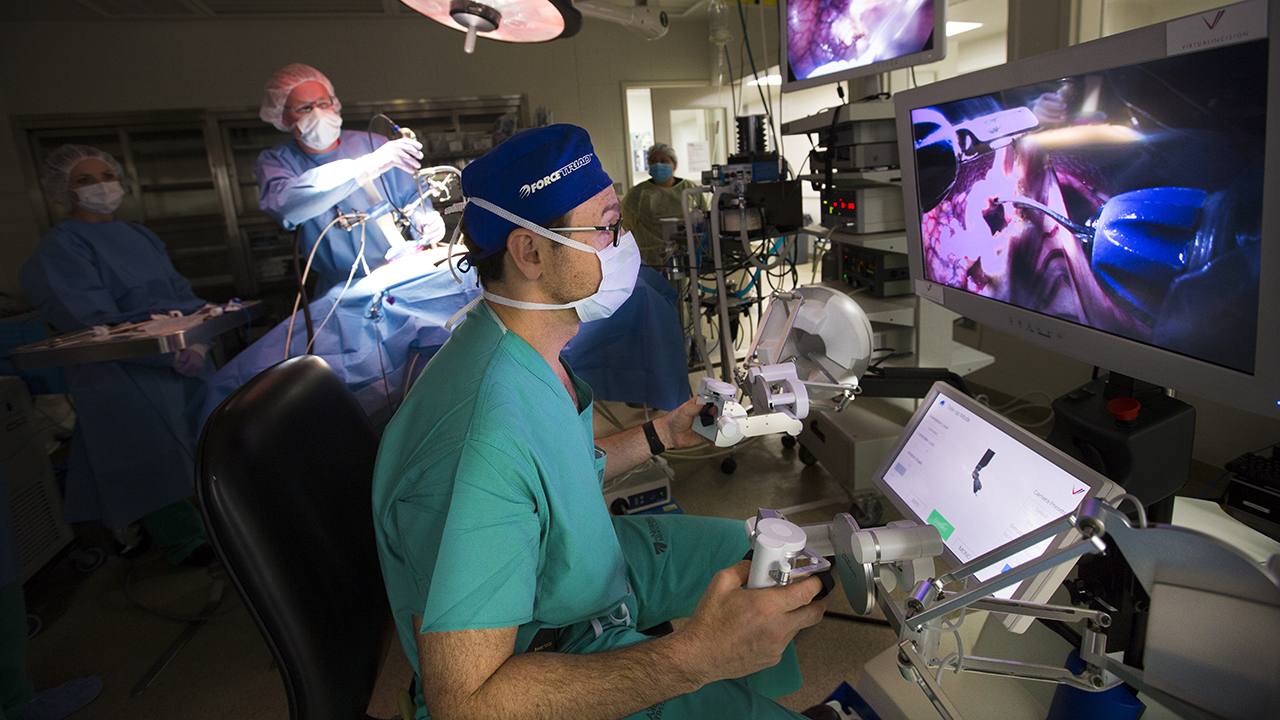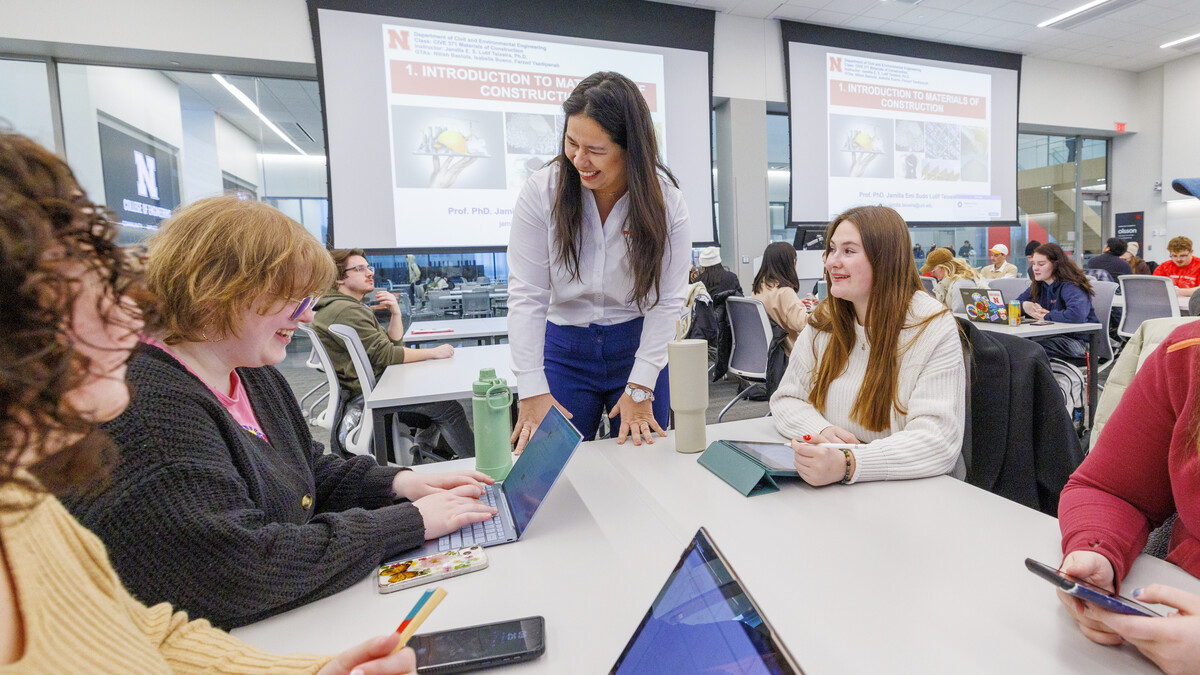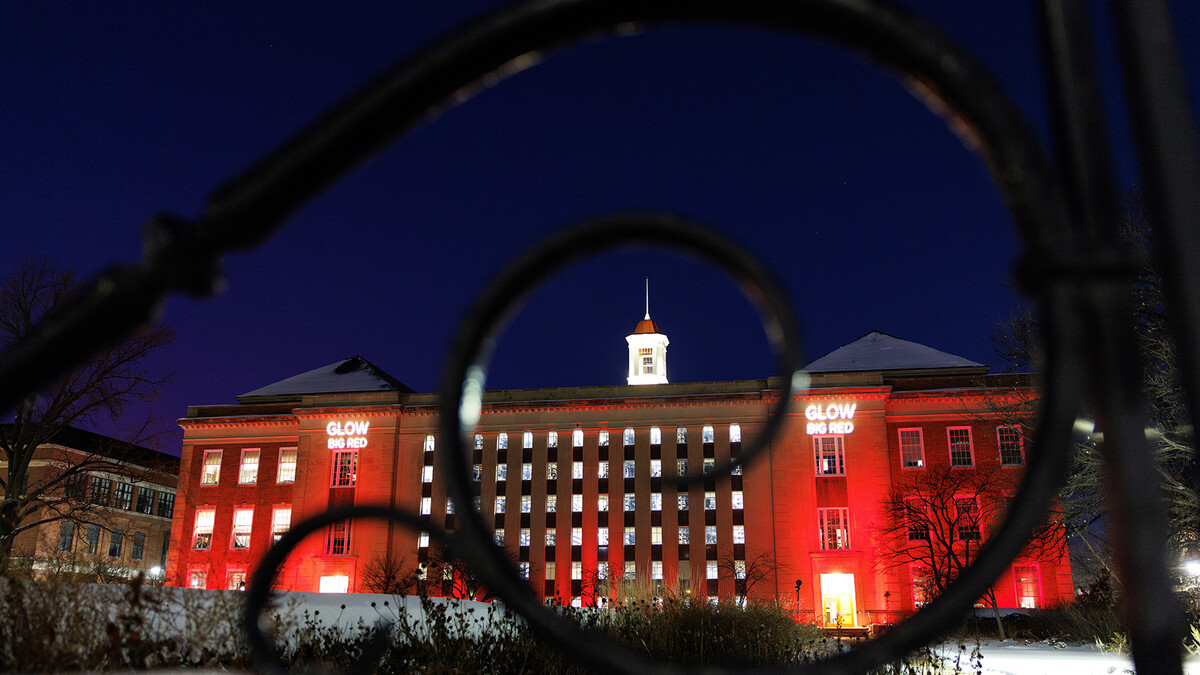
A University of Nebraska faculty collaboration has received funding that will help it prepare a next-generation surgical robot for a round of human trials and consideration for commercial approval by the U.S. Food and Drug Administration.
Virtual Incision Corp., a medical device company founded by the University of Nebraska-Lincoln’s Shane Farritor and University of Nebraska Medical Center’s Dmitry Oleynikov, announced that it has raised $18 million in equity funding for the miniaturized robot, which aims to speed recovery and reduce costs of abdominal procedures.
Virtual Incision’s unique technology features a dexterous two-pound robot that can enter a patient’s abdomen through a single small incision, allowing surgeons to perform colon resections or other procedures with familiar tools and techniques. Colon resections help treat patients with gastrointestinal maladies such as Crohn’s disease, inflammatory bowel disease and colon cancer.
Existing mainframe-like robots, which can weigh up to a ton and use multiple arms for manipulating long tools that reach inside the body, can require surgeons to make as many as six large incisions during a colon resection.

The company’s robotic platform employs artificial intelligence and machine-learning technologies to track and guide instrument usage. It also incorporates state-of-the-art tools that include the world’s first robotic flex-tip laparoscope, a camera-equipped instrument used to examine the abdominal cavity. In 2016, Virtual Incision’s device became the first miniaturized robot to perform complex surgical tasks inside a living human as part of a feasibility trial supported by the first round of funding.
“Virtual Incision is committed to developing a family of simpler and more cost-effective robotic options targeting multiple procedures, including gallbladder removal, hernia repair, colectomy and similar abdominal surgeries,” said Oleynikov, the company’s chief medical officer and UNMC’s chief of minimally invasive surgery. “Our elegant technologies will help eliminate the complex and costly surgical robot options currently available. Virtual Incision will provide minimally invasive options in a cost-effective and streamlined two-pound package.”
The company’s latest funding was led by China’s largest health care company, Sinopharm Group, alongside existing investors Bluestem Capital and PrairieGold Venture Partners. Virtual Incision has also received a seed investment from Invest Nebraska, a public-private partnership with the Nebraska Department of Economic Development.
Farritor and Oleynikov founded Virtual Incision with support from Nebraska’s NUtech Ventures and UNMC’s UNeMed, technology-transfer offices that helped the University of Nebraska system rank 35th out of 225 institutions in a 2017 list compiled by the Milken Institute, an economic think tank. The company’s headquarters reside at Nebraska Innovation Campus, which facilitates partnerships between the University of Nebraska and private industry.
“Congratulations to Virtual Incision on the new investment,” said Nebraska Gov. Pete Ricketts. “Virtual Incision joins tech companies like Facebook, Hudl and others who are making new investments in the Silicon Prairie. This is yet another great example of how tech, IT and startups are helping grow our state and are creating great opportunities for the next generation of Nebraskans.”








